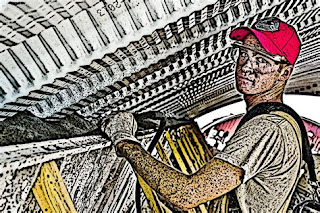Knowles, E., McDermott, M., & Richeson, J.
(2021, July 2).
https://doi.org/10.31234/osf.io/mjhdy
Abstract
The present work demonstrates that, contrary to popular political narratives, working-class White Americans are far from monolithic in their class identities, social attitudes, and political preferences. Latent profile analysis (LPA) is used to distinguish three types of identity in a nationally representative sample of working-class Whites: Working Class Patriots, who valorize responsibility, embrace national identity, and disparage the poor; Class Conflict Aware, who regard social class as a structural phenomenon and ascribe elitist attitudes to higher classes; and Working Class Connected, who embrace working-class identity, sympathize with the poor, and feel disrespected because of the work they do. This identity typology appears unique to working-class Whites and is associated with distinct patterns of attitudes regarding immigration, race, and politics, such that Class Conflict Aware and Working Class Connected Whites are considerably more progressive than are Working Class Patriots. Implications for electoral politics and race relations are discussed.
Discussion
Despite often being characterized as a monolithic social and political force, members of theWhite working class display considerable diversity in their intergroup attitudes and voting behavior(Smith & Hanley, 2018; Teixeira & Rogers, 2000; Tyson & Maniam, 2016). In an ethnographic study of working-class Whites in Kentucky, Missouri, and Indiana, McDermott and colleagues(2019) identified three identity types among White working-class interviewees: Working ClassPatriots, who identity strongly as American, emphasize responsibility, disparage the poor, and report feeling respected in their jobs; Class Conflict Aware Whites, who see the working class as locked in a conflictual relationship with socioeconomic elites; and Working Class Connected Whites, who identify strongly as members of the working class, feel compassion toward the poor, and report feeling looked down on because of the work they do. These researchers found that the three identity types were associated with different patterns of social attitudes—with Patriots tending to disparage Black people and Latino immigrants, Conflict Aware Whites displaying progressive attitudes toward these groups, and Class Connected Whites exhibiting a combination of tolerant attitudes toward immigrants and hostile attitudes toward Black people.
The present research represents a quantitative extension of these qualitative findings. In a nationally representative sample of working-class (non–college-educated) White Americans, we measured five themes emerging from previous qualitative work: American identification, the value placed on responsibility, psychological distance from the poor, the belief in stark divisions between social classes, and the tendency to feel looked down on by members of higher classes. Latent profile analysis (LPA) was then used to assess whether the White American population contains discrete types resembling the Working Class Patriot, Class Conflict Aware, and Working Class Connected groups. Indeed, the best LPA solution yielded three identity types based on our five indicators, and these types could be readily matched to those found in McDermott et al.’s (2019) qualitative work(Figure 1a). The representation of the types in our survey sample broadly matched the breakdown in the ethnographic study—with Patriots making up the majority of respondents and the remaining sample split roughly between Class Conflict Aware and Working Class Connected Whites.
Psychologists need to understand that white working class culture is not monolithic, just like other cultures.
